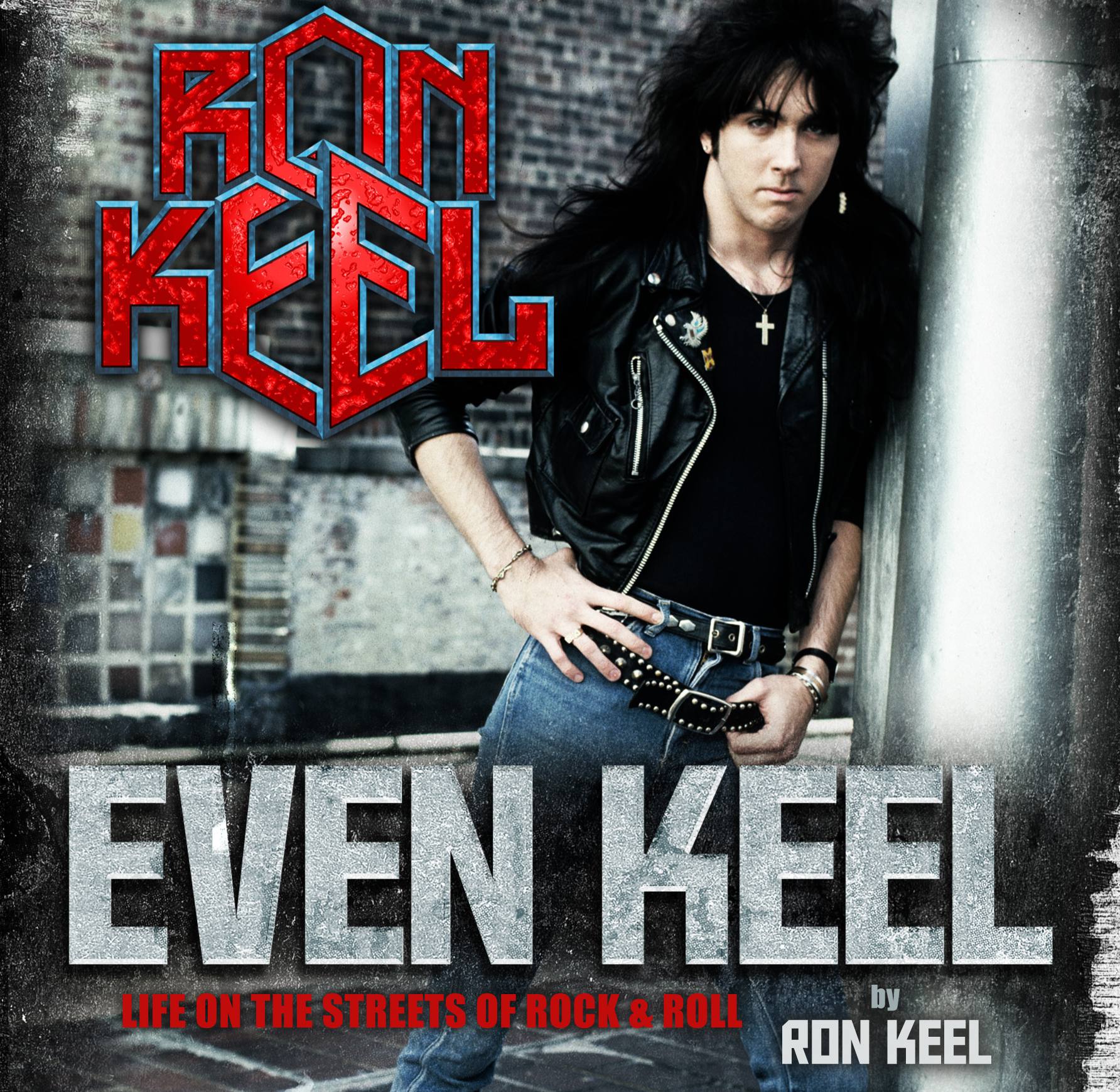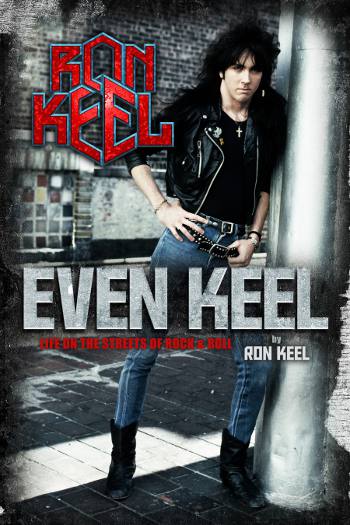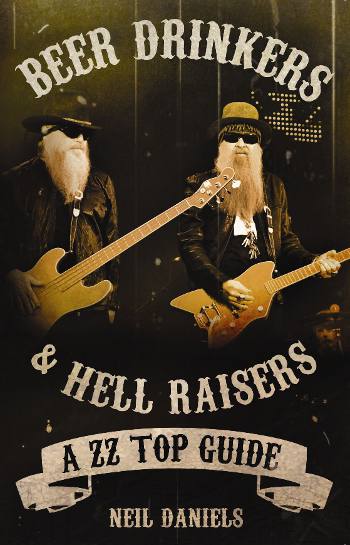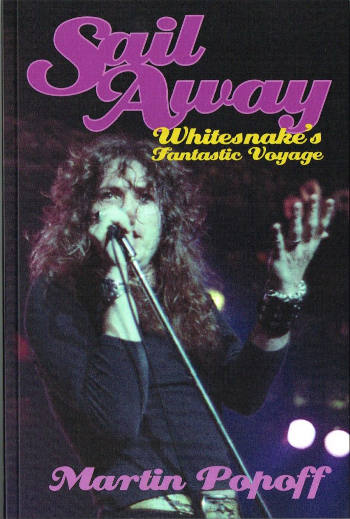
by Derric Miller
– Managing Editor —
 “If the sum of all my days could be measured by the mile, I’d be a wealthy man and say it was all worthwhile.” Ron Keel wrote those lyrics in the song “I Gave It All To You” and they are the equivalent of a summary of his autobiography Even Keel: Life On The Streets Of Rock & Roll. To put it simply, Keel’s vagabond ways both geographically and musically show a man who is in love with the journey, and whether the results end in opening for Bon Jovi and crushing Madison Square Garden or playing acoustic guitar for beer and tips in a shanty town or a bar, it’s all about the next experience.
“If the sum of all my days could be measured by the mile, I’d be a wealthy man and say it was all worthwhile.” Ron Keel wrote those lyrics in the song “I Gave It All To You” and they are the equivalent of a summary of his autobiography Even Keel: Life On The Streets Of Rock & Roll. To put it simply, Keel’s vagabond ways both geographically and musically show a man who is in love with the journey, and whether the results end in opening for Bon Jovi and crushing Madison Square Garden or playing acoustic guitar for beer and tips in a shanty town or a bar, it’s all about the next experience.
The autobiography is being released in tandem with his first true solo album, Metal Cowboy … but there’s a hell of a lot of backstory beforehand.
The book begins in a straightforward tone; Keel has a knack for just telling it how it is. As he’ll attest to, he’s a storyteller at heart. There are no abstract forays into pseudo-intellectual grandiose writing styles; he’ll just write “I did drugs” if that’s what he meant. And he did, quite often. The brutal honesty about himself and others is brave. How many lead singers could ever write “I confess to having no natural talent or singing ability.” Although that reference is to him in music class as a kid, later, he talks about how hearing his voice on the radio for the first time on the song “Hooker” shell-shocked him. “My excitement suffered a quick and painful death when I realized how terrible my voice sounded.”
From a personal perspective, Keel takes you on a journey with his drug-using and violent first wife, where he has no compunction to pull the punches on himself or her. But there’s a nobility that shines through when he talks about the mother of his children; in that arena, because of his children, Keel writes “I am honor bound to do what is best for my kids and my telling of this tale must be crafted with them in mind.” So he paints himself as an alcoholic drug user who specializes in adultery during their 17 years together but simply leaves her be. That’s called one side of the coin, and he should be applauded for taking the high road when it’d be so easy NOT to.
What the reader has to know when picking up this book, Keel doesn’t often look back nor define himself by his past. He almost writes those words exactly in his autobiography. So if you are expecting these pages to be filled with KEEL (the band) history … you don’t even read about the formation of KEEL until page 162. Instead, what you get is the true tale of a boy who fell in love with rock & roll at age three and the journey he took to get to Metal Cowboy today.
The Steeler section is not as dirty or grimy as you’d expect from the way Yngwie Malmsteen communicated his experience with Steeler. Malmsteen mocked them as small-town yokels afraid of the big city in his biography; Keel writes about how one day he got attacked, knocked out and concussed at a bus stop and another time a dude with a gun just stood in his living room at the Hollywood apartment and Keel offered him weed—no one got hurt. It’s obvious that Keel and Malmsteen both considered themself to be “the alpha male” and there’s just no way that relationship could work. Keel does get a small dig in later, which is apropos, when Malmsteen is having guitar issues opening for Aerosmith in Boston and Keel ended that section by writing “I had the strangest urge to dance in the end zone.”
For the Keelaholics, though, it’s a bittersweet read. Knowing now that by the time the third KEEL album was released that the band was basically already “done for” just sucks. There’s no two ways about it. Fans of KEEl to this day are flummoxed that songs like “I Said the Right Thing to the Wrong Girl” didn’t OWN the radio waves. Keel, all along the journey, fills you in on why he made the decision he did at each specific moment and he’s a logical, driven, intelligent businessman/showman. The dagger dug deep and kept digging when MCA and Gold Mountain forced the band with a “trust me” to release “Because the Night” as the first single off of The Final Frontier. That pissed off all the heavy metal fans who thought “The Right to Rock” was their life anthem. Later, when Jon Bon Jovi tells KEEL to add “Because the Night” to their set list or they are off the tour, that dagger just twists a little bit more.
For those who haven’t followed Keel every step of the way, you get insight into the all-female band he fronted called Fair Game and also the spectacular metal release Saber Tiger, where he was hired by receiving a fax and responding to the phone number on it he’d do the album for $75k. They got him at $30k and off he went to Japan, recording the heaviest, harshest and highest vocals of his career. The fact that Keel went from rock to country to Saber Tiger and then back to country can only be explained by “Of course he did. He’s Keel.”
The must read part of the entire autobiography is when Keel was hired as the lead singer for Black Sabbath … and then subsequently wasn’t. It just leaves a big fat “what if” aspect to the autobiography.
Keel is obviously a child of metal, but there’s an authenticity to his country years because when you read it, he’s in love with the style of music. If you listened to the ‘90s country stars like Travis Tritt, Alan Jackson, Garth Brooks, Dwight Yoakam, etc. then you can understand why country appealed to him. He’d just been kicked out of his life as a rock star by Nirvana and Pearl Jam, and this sort of high-powered rock & roll country was, for Keel, just what the doctor ordered.
The tales of sex and drug use are many, perhaps more than anyone who doesn’t know him would ever guess. He writes “Throughout my career with KEEL, on into Fair Game, and even during all of ‘The Country Years,’ I was on cocaine for nearly every vocal track I ever recorded.”
Even Keel somewhat abruptly ends, albeit full circle, with a review of KEEL’s reunion show on Jan. 31, 2009, written by Paul Gargano. At this concert, KEEL has come to terms with “Because the Night” and its place in their history, and like everything KEEL, is a celebration of just being alive and enjoying life.
Keel even notes that he could write a book just about Steeler, just about KEEL, just about IronHorse, and just about “The Country Years” and he may do so yet. He’s always on to the next mountain to climb.
From a three-year-old kid who saw the Beatles on TV and became obsessed with music, to marriages and breakups, to touring the world and having that taken away, to multi-platinum rock star status to working as a roadie for Lynyrd Skynyrd selling t-shirts, to his success as a Vegas tribute show producer and star and the KEEL reunion, Keel’s life has been lived a few times, and he’s still living it at the only speed he knows how to today …
Online: www.ronkeel.com



